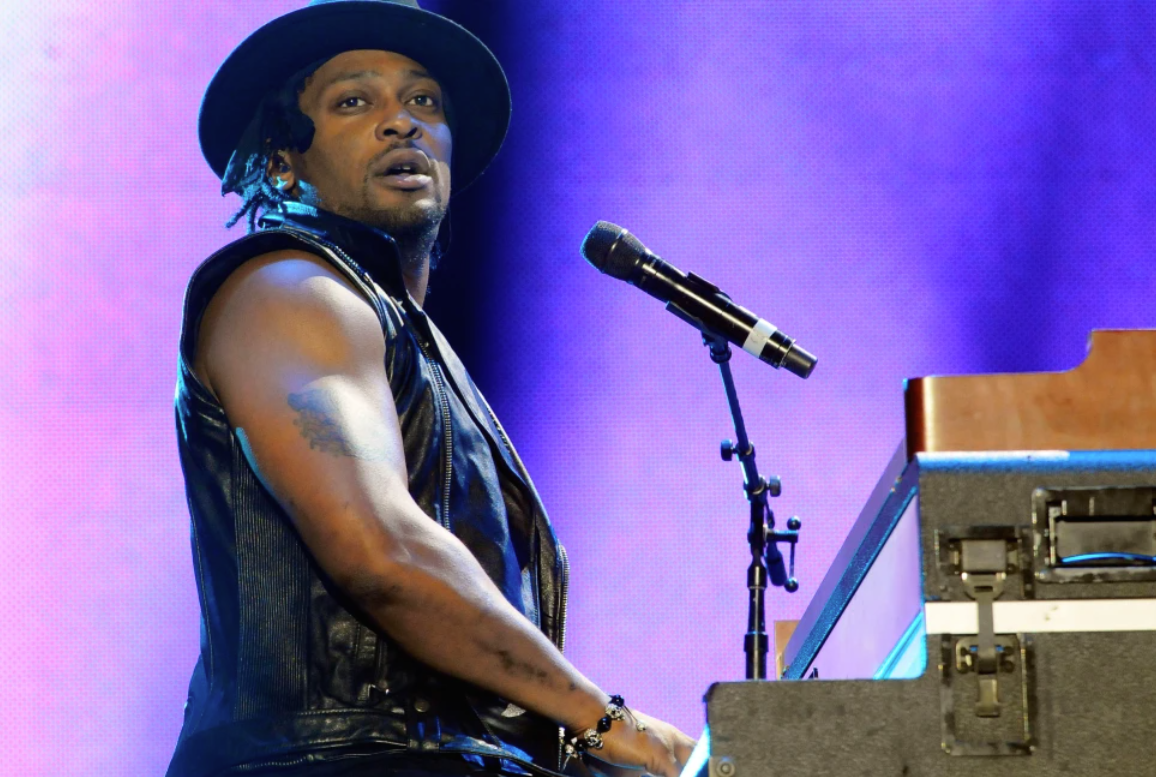
D’Angelo, Grammy-winning R&B singer who became an icon with ‘Untitled (How Does It Feel),’ dies
The singer, whose real name was Michael Eugene Archer, died Tuesday after a long bout with cancer, his family said in a statement.
It called him “a shining star of our family and has dimmed his light for us in this life,” adding that they are “eternally grateful for the legacy of extraordinarily moving music he leaves behind.”
In his music, D’Angelo blended hip-hop grit, emphatic soul and gospel-rooted emotion into a sound that helped spearhead the neo-soul movement of the 1990s. Earlier this year, the Virginia native celebrated the 30th anniversary of his debut studio album “Brown Sugar,” a platinum-selling offering that produced signature hits like “Lady” and the title track. The 1995 album earned him multiple Grammy nominations and cemented him as one of R&B’s most original new voices.
D’Angelo’s sultry vocal style — a mix of raspy texture and church-bred fluidity — set him apart from his peers. That voice became inseparable from the striking visuals of his 2000 single “Untitled (How Does It Feel).” The minimalist, shirtless music video became a cultural touchstone, igniting conversations around artistry, sexuality and vulnerability in Black male representation. The song earned him a Grammy for best male R&B vocal performance and propelled his sophomore album “Voodoo,” topping the Billboard 200 chart and winning the Grammy for best R&B album.
With an idiosyncratic spirit not unlike Prince, D’Angelo’s devotion was always to the craft — not the machinery around it. In a 2000 interview with The Associated Press, he spoke candidly about the cost of chasing commercial success.
“(Musicians) have gotten trapped into that mode of thinking marketable and commercial. That destroys art, that destroys the essence of what it is about,” he said. “You cannot, you cannot work like that. You cannot make music like that. That’s not what this is about.”
Beyond his own catalog, D’Angelo’s artistry shined in collaborations. He memorably duetted with Lauryn Hill on the soulful ballad “Nothing Even Matters,” a highlight of her landmark 1998 album “The Miseducation of Lauryn Hill.” He also contributed to The Roots’ 1996 album “Illadelph Halflife” and was part of the supergroup Black Men United, which yielded one song: “U Will Know,” which D’Angelo wrote and co-produced, for the film “Jason’s Lyric” in 1994.
“I remember hearing your music for the first time… I said to myself damn whoever this is they are anointed,” Jamie Foxx said on social media. “Then when I finally got a chance to see you… Like everyone when they saw the most incredible music video of our time… I was blown away… I thought to myself I have to see this person in concert… I had my chance to see you at the house of blues… You came out and got right down to business… Your voice was silky and flawless… I was graciously envious of your style and your swag…”
Years before stepping back from public view, D’Angelo’s life and music were closely intertwined with Grammy-nominated R&B singer Angie Stone in the ’90s. The pair met while he was finishing “Brown Sugar” and bonded over their shared Southern roots and deep church upbringing. Stone contributed to the album and later collaborated with him on “Everyday,” a song from her 1999 debut album, “Black Diamond.”
Stone once described D’Angelo as her “musical soul mate,” to the AP in 1999, adding that their working relationship was “’like milk and cereal …. Musically, it was magic. It’s something that I have not been able to do with any other producer or musician.” They had a son together, the artist Swayvo Twain, born Michael Archer Jr.
Stone died earlier this year in a car crash. She was 63.
D’Angelo also has a daughter, Imani Archer, who is also a music artist.
In the years that followed, D’Angelo’s life became as defined by absence as by acclaim. After “Voodoo,” he withdrew from the spotlight for more than a decade, fueling speculation about personal struggles and creative battles. His long-awaited return came in 2014 with “Black Messiah,” credited to D’Angelo and The Vanguard. The urgent and politically charged album that arrived amid nationwide protests and helped usher in a wave of activist music responding to police killings of Black Americans and the rise of the Black Lives Matter movement.
The album debuted at No. 5 on the Billboard 200 chart and won him a Grammy for best R&B album, reaffirming his stature as a generational voice. Its standout single, “Really Love,” earned him another Grammy for best R&B song and earned a nomination for record of the year.
In May, D’Angelo withdrew from being a headliner for the 2025 Roots Picnic in Philadelphia due to “an unforeseen medical delay regarding surgery (he) had earlier this year,” the artists shared in a statement. D’Angelo said he was advised the performance “could further complicate matters.”
Beyond his biggest singles, D’Angelo’s catalog includes fan favorites like “Me and Those Dreamin’ Eyes of Mine,” “Cruisin’” and “Devil’s Pie.” His influence stretched far beyond the charts: he inspired a wave of artists including Maxwell, Alicia Keys and Frank Ocean.



